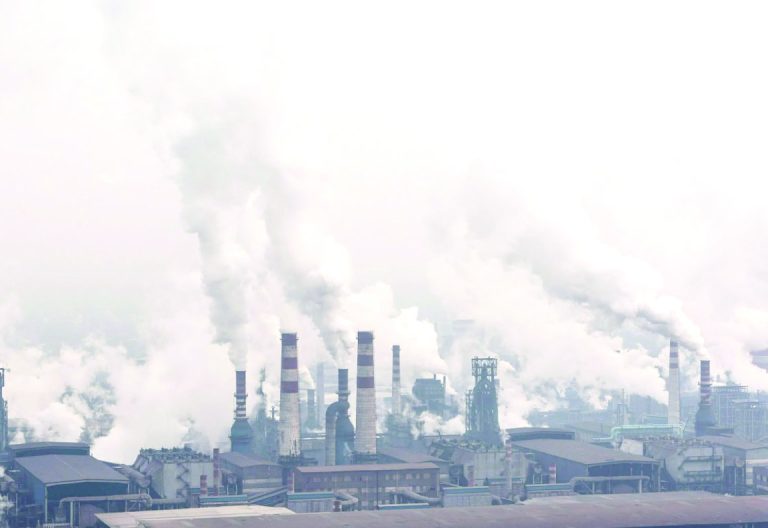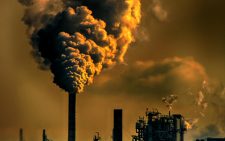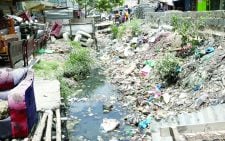Talks to ban toxic chemicals as pollution crisis escalates

Representatives from 180 countries are meeting in Geneva, Switzerland, to discuss restricting toxic chemicals, including a widely used pesticide and a common stain repellent.
Negotiations started last week and end on Thursday, as part of a series of biennial meetings known as Conferences of the Parties to the Basel, Rotterdam and Stockholm conventions.
These conferences come amid mounting concerns that hazardous chemicals are flooding the Earth. The proliferation of these compounds is one of the most troubling markers of the planet-wide pollution crisis.
According to the United Nations Environment Programme (UNEP), chemicals and pollution action matter. Chemicals are integral to our everyday life, but they also have major impacts on the environment and human health.
UNEP promotes joint approaches to environment and health that demonstrate the economic, environmental and health advantages of sound chemical management for all. The objective to stimulate policies and investment to reduce chemical risks to health and the environment.
“Chemicals are an integral part of the modern world,” said UNEP Chief of the Chemicals and Health Branch, Jacqueline Alvarez, ahead of the meeting. “But too often, exposure to harmful chemicals through food, consumer products and the environment can have severe consequences for people and planet”.
With the world population currently estimated at 8.2 billion, the sound management of chemicals and waste is becoming ever more important. Why does chemicals and pollution action matter?
Controlling chemicals
Adopted between 1989 and 2001, the Basel, Rotterdam and Stockholm conventions are three closely related international agreements designed to protect people and the environment from hazardous chemicals and waste. Countries that have ratified or otherwise accepted the agreements meet every two years.
Delegates in Geneva are debating a recommendation from a scientific review panel that calls for parties under the Stockholm Convention to eliminate the use of three long-lasting chemicals that can build up in humans and other living things.
They are chlorpyrifos, an insecticide, some chlorinated paraffins, which are used in adhesives, and long-chain perfluorocarboxylic acids, often found in stain repellents.
Negotiators are also expected to discuss placing guardrails on the cross-border trade of 10 chemicals, including mercury and asbestos, under the Rotterdam Convention. If adopted, the move would prevent countries from exporting those chemicals to other nations without their prior informed consent, a procedure originally designed to stop toxic dumping in the developing world.
There is also a high-level segment in which government ministers are expected to discuss how to improve the management of chemicals and waste. Under the theme ‘Make Visible the Invisible’, the talks include a series of side events, several hosted by UNEP, alongside the negotiations.
A UNEP study found between 40,000 and 60,000 chemical compounds are regularly used in commercial products, from fertilisers to electronics.
The Geneva talks are expected to raise awareness about the safe and sustainable need for sound management of chemicals and the risks of chemical pollution from exposure to harmful chemicals amidst an expected growth of the chemicals industry, which is projected to reach US$10 trillion in value by 2030.
Discussions are also considering how to push forward the implementation of the Global Framework on Chemicals, an overarching 2023 agreement designed to protect the planet from chemicals and waste.
Speaking at the conference on accelerating action on chemicals, waste and pollution management, UNEP Executive Director Inger Andersen said when waste is not managed environmentally, people and planet pay the price.
“And while chemicals play an important role in our societies, when improperly managed they drive the triple planetary crisis – the crisis of climate change, the crisis of nature biodiversity and land loss, and the crisis of pollution and waste,” she said.
Sustainable solutions to the triple crisis, Andersen noted, arise from multilateral environmental agreements, such as the Basel, Rotterdam and Stockholm (BRS) conventions, which protect human health and the environment from the risk of exposure to hazardous chemicals and wastes.
UNEP hosts the secretariat of the BRS conventions and 17 other conventions and platforms entrusted to it by member states. The BRS conventions play a critical role across the spectrum of conventions and other frameworks, from the UN Convention on Biodiversity (CBD) and its Kunming-Montreal Global Biodiversity Framework (GBF), to the Global Framework on Chemicals.
Huge toll
These are linked to the instrument to end plastic pollution and the Science Policy Panel on chemicals, waste and pollution prevention – both under negotiation. The Geneva meeting is considering ways to expand and strengthen solutions through the BRS conventions, in the areas of pollution control, circularity and financing.
Andersen identified three priorities the meeting must tackle. First, is strengthening action on preventing pollution and chemical exposure. “Pollution hazards and exposure present real risks. Persistent organic pollutants (POPs), for example, accumulate in living organism, which means higher health risks – such as cancer, endocrine disruption, and birth defects,” she added, noting that this imposes a heavy economic burden on healthcare systems, and a heavy toll on the families and communities impacted.
“So, as you look at the span and effort of the Stockholm Convention, which is phasing out POPs, let’s look at safety across the entire sector. Can governments create policy incentives to promote innovation from industry to scale green and safe chemicals?” she posed.
Second, Andersen urged the meeting to boost circularity, saying the Rotterdam Convention is ensuring proper transboundary movement where facilities exist to process the waste, ensuring prior informed consent, “but we cannot expect these two conventions to do it all”.
Each year, two billion tonnes of municipal solid waste are generated. Plastic waste and E-waste are rising. Recycling rates are low across the board.
“So, we must avoid producing waste in the first place – through smart upstream Extended Producer Responsibility (EPR), to name just one entry point,” she explained while acknowledging that progress has been made in waste as a resource in national jurisdictions, and efforts to grow circular economies are popping up everywhere.
“There are many new jobs coming online from innovations – in product safety and in products designed for durability, reuse and easier recyclability. But my question is, how can governments further incentivise circular markets?”
Third, the UNEP chief calls for the creation of the right fiscal environment for reducing pollution and waste, and for increasing sound management of chemicals. The Global Environment Facility (GEF) has been critical in supporting the BRS conventions, particularly the Stockholm Conventions.
The next GEF replenishment is key. Moving to chemical safety across entire sectors will require the GEF 9 strategy to evolve, guided by governments and will require significant replenishment. Governments also need to create the right fiscal policy environment and unlock innovative financing.
EPR, she said, can make companies responsible for financing waste management and circular economic approaches. How can governments leverage finance from other sectors, such as insurance companies, banks of all stripes, export credit entities, securities and exchange commissions?
Alvarez said she hoped country representatives would push for systemic changes to the use of chemicals, including by reducing or eliminating hazardous substances in compounds through what’s known as “green and sustainable chemistry”.
She would also like to see countries address chemical pollution through a sector-wide approach instead of compound by compound, as has long been the case.













